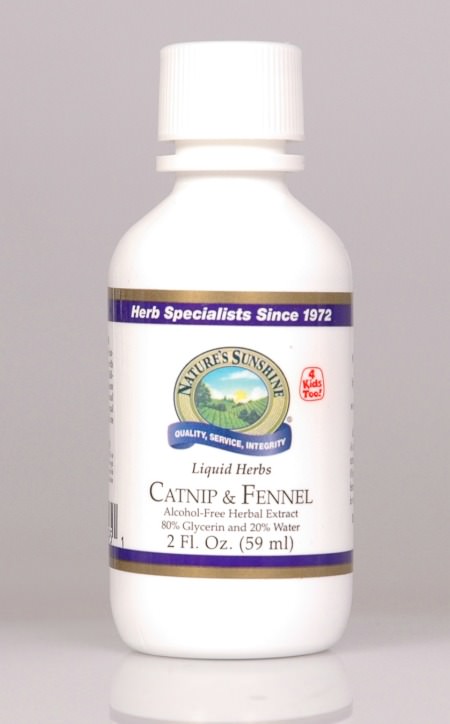Table of Contents[Hide][Show]

For those of you familiar with the various “nursing personalities”, my son was definitely the speed nurser (aka, “Barracuda”), latching on like a little vacuum and suckling with all his might for about 10 minutes on each side until there was nary a drop left.
Because he was such a hungry little fella and nursed so quickly, he suffered from a lot of gas issues due to swallowing quite a bit of air with each feeding.
Granted, some of his gas issues were due to my consumption of pasteurized organic dairy, but I didn’t know at the time that this was part of the problem.
Burping him properly after each feeding helped of course, but he still would get very gassy from time to time and he would cry from the discomfort in his little tummy.
Like any new mother, I wanted to give my baby relief as his cries, especially around sundown, were tough to handle on some days.
The first person I asked for help was my Pediatrician, who immediately recommended Mylicon infant gas drops, an over the counter gas remedy from the pharmacy.
I went to the local drugstore right away and picked up a bottle that had the words “safe for babies” emblazoned on the package. The words also proclaimed that the product was free of alcohol, saccharin or artificial flavors.
Sounded good.
When I got home, however, I started to read the fine print and was dismayed at what I discovered.
Dangers of Mylicon Drops
First of all, the active ingredient in this gas remedy was something I had never heard of before: Simethicone.
I then went from concerned to downright disturbed when I read the inactive ingredients:
Mylicon Drops ingredients: anhydrous citric acid (GMO), benzoic acid, flavors, glycerides (C14-18, mono- and di-), maltitol, methylcellulose, microcrystalline cellulose and carboxymethylcellulose sodium, polyoxyl 40 stearate, polysorbate 65, purified water, silica gel, sodium benzoate, sodium citrate, xanthan gum.
Citric acid almost certainly derived from genetically modified (GMO) corn?
Benzoic acid, a harmful preservative used in cosmetics?
Methylcellulose derived from pesticide residue laden wood pulp?
DNA damaging sodium benzoate linked to Parkinson’s disease, liver damage and hyperactivity in children?
Not in my child’s body, thank you very much!
 Gripe Water Full of Toxic Ingredients Too
Gripe Water Full of Toxic Ingredients Too
When I called the Pediatrician back with my concerns, the receptionist suggested Gripe Water as a safer gas remedy alternative. But examining the ingredients at the pharmacy for this supposedly safe herbal supplement wasn’t impressive either.
Gripe Water ingredients: purified water, sugar (GMO), glycerin (GMO), propylene glycol, sodium citrate, natural ginger flavor, citric acid, xanatham [sic] gum, disodium EDTA.
Sugar?
Citric acid known to likely contain MSG residues and most certainly derived from GMO corn?
Propylene glycol, aka “edible” antifreeze?
Disodium EDTA, a preservative that may cause allergic reactions, asthma attacks, skin rash, and possible kidney damage?
Unreal that this remedy could be considered in any way “natural” or herbally based!
At this point, I felt betrayed by my Pediatrician’s office which had recommended not one, but two gas remedies that were loaded with toxic ingredients. How in the world could putting such chemicals into my newborn’s body, possibly multiple times a day for weeks or months on end until he outgrew his gas issues NOT be harmful?
Natural Gas Remedy for Babies
I decided not to give my son either the Mylicon drops or the Gripe Water and promptly threw the bottle of Mylicon drops I had purchased in the trash.
Next, I picked up the phone and called my midwife for advice instead – something I should have done in the first place even though I was no longer under her care since baby was now several weeks old.
She advised that I buy a bottle of Nature’s Sunshine Catnip and Fennel extract and put a drop on my baby’s tongue after feedings to eliminate gas. Having been burned twice, I was careful to check the ingredients once again. I was relieved when I read the following:
Catnip and Fennel extract: Catnip leaves extract and fennel seed oil in a base of glycerin and water (sources).
At last, a safe gas remedy that had no ingredients that I felt uncomfortable putting in my baby’s body!
But, did it work?
Yes, it did! It worked extremely well in relieving gas and tummy discomfort in my newborn and it was safe to use with every single feeding.
As a bonus, my baby loved the taste too. I continued to use this gas remedy until he was well over a year old. Sometimes I would even use it if he wasn’t gassy as he enjoyed the taste so much and it soothed him a great deal before naps if he was feeling fussy.
This experience was one of my initial introductions to learning the critical importance of questioning what my Pediatrician said and examining for myself whether a medicine or procedure was truly “safe” for my child. Not only might a doctor’s advice be incorrect, but there is likely an equally effective remedy that is completely nontoxic that works just as well and you can feel good about using – if one is open to looking.
More Information
Are You a Tummy Bug Magnet? Fat Phobia May Be the Cause
Slippery Elm for Tummy Aches
Natural Reflux Remedy
Food Poisoning Remedies








Sara Campilii is there anything in your diet she’s reacting to? Grains or dairy specifically
Rachel have u seen this?
Leah Marie Glick
Can anyone suggest a probiotic for a newborn (6 weeks). My daughter spits up SO much all day long… I heard probiotic can help with this or is there anything else I can try for her excessive spitting up?
Try Gerber’s Soothe Colic Drops. It is just Lactobacillus Reuterii.
http://medical.gerber.com/products/formulas/gerber-soothe-colic-drops-probiotic-supplement
Thank you so much for reposting! I have a 3week old with this exact issue & I remembered seeing this but couldn’t remember the recommended product. Ordering now!!!!
Another excellent article Sarah!
From your description, having a baby who gulped while nursing and feeding 10 minutes on each breast may be dealing with an overactive milk ejection reflex. In essence, mom’s milk is coming out too fast. They tend to get an overload of lactose rich milk and are extremely gassy, pooping sounds like mini explosions, fussy. They want to nurse for comfort and to pacify but can’t due to eliciting another let down. Nursing in a more reclined position, hand expressing before each feed and doing one sided feedings can be very helpful. Also nursing 2 or more complete feeds in a row on one breast or block feeding helps to minimize the force of the let down. Increase number of feeds on one breast after 2-3 days of no results. I’ve know moms to BF their babes up to 12 hours in a row on one breast. While that is extreme, it can work wonders. While supple is adjusting, hand express unused breast slightly or until just thinking about being comfortable. And yes, baby in the picture just might be tongue-tied.
For our first born Laura someone gave us a certificate for an infant massage class. Sounds ridiculous, but their is a massage technique to massage out the gas. It follows the natural route of gas but helps it along to exit. No meds required. It is YouTube as baby gas massage. It is amazing a must see it you have newborns. Just beware the gas may not be the only thing coming out.
Tabitha Lane check this out